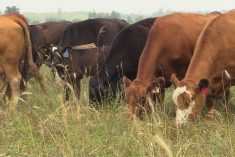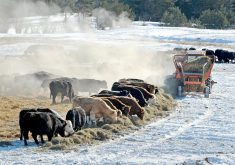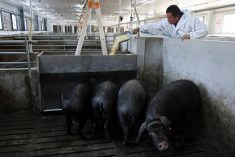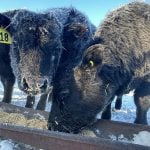Loss of accreditation as a general farm organization in Ontario has left the National Farmers Union-Ontario (NFU-O) urging farmers to support it through refunds from the province’s two remaining accredited groups.
Such has been the NFU-O’s lot since December 2012, when Ontario’s Agriculture, Food and Rural Affairs Appeal Tribunal, in the wake of hearings on July 18 and Dec. 14, dismissed the group’s application for accreditation.
The tribunal’s specific reasons, released only last week, paint a picture of the NFU-O as “so completely dominated and controlled by another farm organization (that it) does not represent farmers in the province.”
Read Also
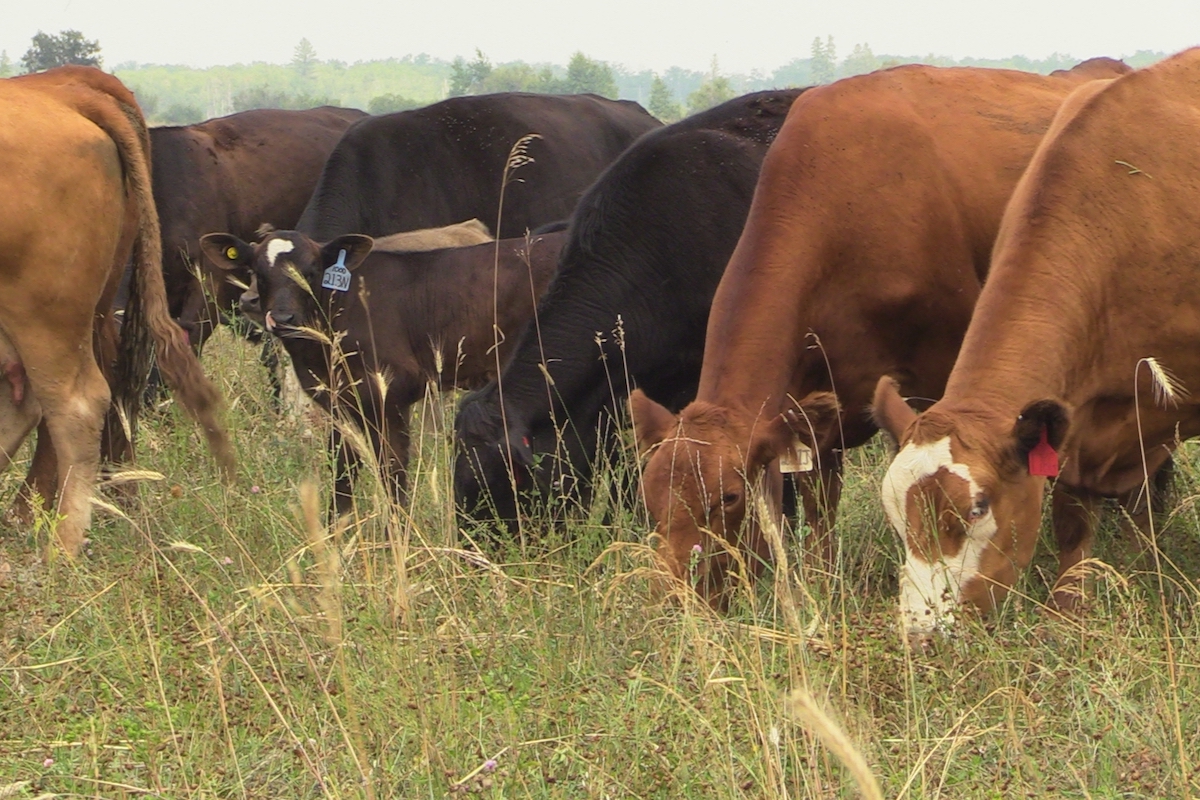
Beef industry weighs in on AAFC research cuts
The Canadian Cattle Association and Beef Cattle Research Council said cuts to federal research centres and programs will have long-term debilitating consequences for the beef industry.
Ontario’s system of farm business registration (FBR) — in which farmers must apply for an FBR number if they want to access certain provincial ag programs — requires, among other things, that farmers pay $195 in annual dues to an accredited general farm organization.
The tribunal last year refused this accreditation not only to the NFU-O, but to the Ontario Federation of Agriculture (OFA) and Christian Farmers Federation of Ontario (CFFO), all three of which had been accredited in previous years. The province stepped in to rework the regulations on accreditation, which saw the OFA and CFFO regain their status.
The tribunal’s latest ruling, however, finds the NFU-O still “does not have standing to apply for accreditation” under the provincial Farm Registration and Farm Organizations Funding Act, and even if it did, the group “does not meet the requirements for accreditation.”
The tribunal finds the Saskatoon-based National Farmers Union, not the NFU-O, has been representing farmers in the province through the NFU-O’s accreditation. The NFU-O “carries out very few activities on its own and is essentially a legal conduit through which the NFU accesses stable funding under the Act,” the tribunal said.
The NFU-O, the tribunal alleged, “exists because the NFU cannot satisfy the requirement (under related regulations) for incorporation under Ontario law.”
The NFU-O itself was incorporated in Ontario in May 2002, just before its initial application for accreditation was dismissed that July. The tribunal would later grant the NFU-O accreditation in September that year.
“The timing of the NFU-O’s incorporation, just a few months before the NFU-O’s initial application for accreditation, suggests that the NFU-O was incorporated to allow the NFU to access stable funding,” the tribunal said in last week’s ruling.
Besides, the tribunal said, “the NFU-O can only use its corporate name at the pleasure of the board of directors of the NFU. It cannot enact corporate bylaws that suit its own purposes but instead must strive to make its bylaws consistent with the NFU’s bylaws. The NFU-O is required to include a dual membership requirement in its bylaws, under which it is impossible for the NFU-O to have members who are not also members of the NFU.”
Moreover, the tribunal said, “during the 2011 and 2010 fiscal years, the NFU-O paid more than half of its net membership revenue to the NFU. Substantially all of those funds came from payments received by the NFU-O under section 21 of the Act.”
When the NFU-O “turns over more than half of its stable funding to the NFU, pays another 25 per cent of its stable funding to the NFU’s locals, and then outsources its important research and policy work to the NFU, it cannot plausibly claim to be an active farm organization representing farmers in the province,” the tribunal said. “In substance, the NFU-O is little more than a legal conduit that accesses stable funding under the Act and then turns over the majority of those funds to the NFU.”
Those funds, the tribunal said, “are extensive, constituting almost 60 per cent of the NFU’s membership income (excluding voluntary contributions).” In fiscal 2011 and 2010, they amounted to $381,402 and $328,954 respectively, and assuming similar payments in previous years, “it is reasonable to conclude that the NFU has received, or benefitted from, millions of dollars in payments out of the stable funding received by the NFU-O.”
The tribunal stressed that it doesn’t mean to imply a farm organization in Ontario can’t affiliate with a national farm organization, but in other cases, the tribunal said, such affiliations are “bottom up” rather than “top down.” The NFU-O, however, “functions with very little autonomy and is effectively shackled to the NFU.”
The tribunal also granted last week that the NFU-O has been accredited by the tribunal in the past — but “as a matter of law, (the tribunal) is not bound by its previous decisions.”
It also noted “there is nothing in any of the tribunal’s previous decisions to indicate that key documents such as the NFU’s bylaws, the NFU’s financial statements, and the legal agreements between the NFU and the NFU-O were in evidence before the tribunal on previous applications.”
“Time and money”
Farmers who want or need an FBR number in Ontario are now thus required to pay dues to either the OFA or CFFO — but can then ask to have those fees refunded to be redirected.
The NFU-O now provides members with a form letter to submit to the OFA or CFFO to get their $195 back.
“I regret the cost in staff time and money to your organization; however, I feel that the NFU-O is the GFO that best represents my interests,” the letter says in part.
The NFU, responding in January to the tribunal’s rejection, pointed out that the NFU-O’s relationship to the national organization “was accepted by several tribunal panels since 2002” and that “the relationship with the NFU allows the NFU-O to address the concerns of Ontario family farmers at local, provincial, national and international levels.”
The NFU alleged in January that “the problem for some, whether in government, in tribunals or outside of the NFU, is that the NFU unwaveringly speaks truth to power. And this appears to be our crime.”
The NFU said it “understand(s) completely the power imbalances that seek to exploit family farmers and ordinary citizens, and as such, we have many powerful and wealthy enemies.”
Nevertheless, the NFU said in January, it “will continue both to exist and to represent farmers in Ontario, as well as across the country. We are not going away.”
However, “Ontario farmers who want the (NFU) to continue to advocate on their behalf will now need to go to the hassle of joining another farm organization to get their FBR number, requesting a refund from that organization and turning around to send their membership fee directly to the NFU-O.”
That in turn means “resources that should be used to advocate for policies that support family farms will now be used to inform farmers about how they can continue to be members of their chosen general farm organization,” the NFU said.
Related stories:
Ont. moves to restore general farm groups’ accreditation, Nov. 19, 2012
Ontario general farm groups to appeal lost status, July 17, 2012


